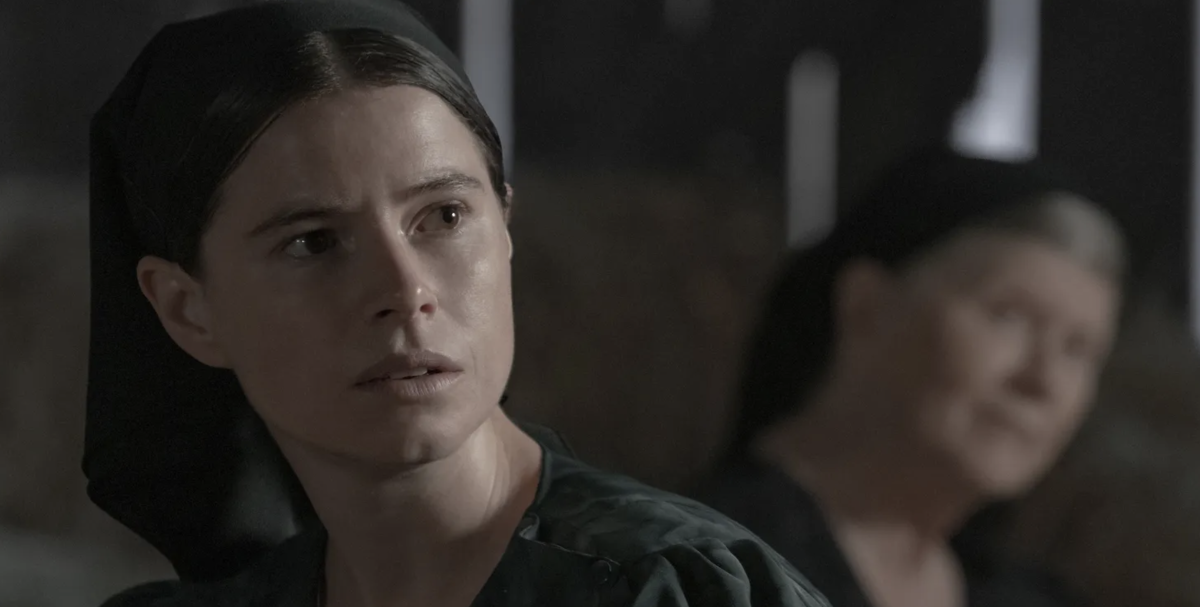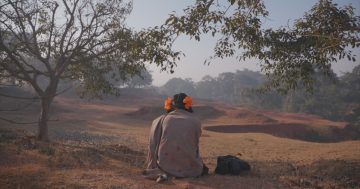
Women Talking is a powerful ensemble piece about sexual assault and its aftermath. Photo: Supplied.
Women Talking is a film that lays out its story quickly and succinctly.
Three generations of women in an isolated rural, religious community have been told they have become pregnant by ghosts, the devil, or some betrayal of God.
Not long into the movie, it becomes clear men in this community have been using an animal tranquilliser to rape women, often repeatedly and for years.
One night, one of the young daughters notices a man running from a house after a sexual assault. He is captured and gives up the others involved and the male Elders of the Community take the eight suspects to the nearest town where they will be charged. Bail will be posted.
The women have 24 hours to decide whether to forgive the men, fight and stay, or leave before the Elders and the accused return to the community.
At the heart of this ensemble piece are six women, two of the grandmothers, Agata and Greta, and four of the women (and daughters), Salome, Mariche, Ona and Mejal.
They gather in the local barn to thrash out what they should do. School teacher August has been ordered to take the minutes of the meeting as none of the women can read or write.
The debate is understandably a complex one.
Where is their God and how has he abandoned them? The Elders, all men, of course, must be held accountable. As some of the argument goes, their teachings must have led these men to carry out such acts of depravity.
And where do these women reconcile their genuine love for God with the protection of their children and their need for community and trust?
The vote lands equally on two of the three options, stay and fight or leave – risking excommunication and fundamentally challenging their religious beliefs – and the film is consumed with that debate as each of the women discuss, argue, rage and shift ground over what is best to do in the face of such horror.
At the centre of this are Ona (Rooney Mara), pregnant after an attack, who first wants to remain; Mariche (Jessie Buckley), who is trapped in a brutal marriage; and Salome (Claire Foy), another woman with children born out of wedlock who wants to protect her four-year-old daughter from rape.
August (Ben Wishaw) has returned to the community after leaving with his mother, who was excommunicated as she believed women needed equality and a voice for the love of God to be shared equally.
He is university educated and clearly has always loved Ona, but his role is mostly complementary, and he’s the only adult male in the movie.
Canadian filmmaker Sarah Polley has adapted Women Talking from the 2018 novel of the same name from fellow countrywoman Mirian Toews, who describes her novel as “a reaction through fiction” to true-life events and “an act of female imagination.”
The events of both the book and film are based on a Mennonite community that had its roots in Manitoba and Mexico and had been moving to Bolivia for some years.
The rapes took place between 2005 and 2009 and involved girls as young as three and women as old as 65. In real life, the eight men convicted in 2011 were given lengthy jail terms.
Polley’s film is multi-layered. She has put all the arguments around unspeakable brutality, circled them with the ideas of trust and love, and imbued both with the flight or fight response to arrive at the most humane conclusion for all involved (and by all involved, I mean the women and children).
This is an all-consuming and startling piece of cinema. Polley’s direction is precise and clear.
The cinematography is mostly in and around the barn and its four-walled opening, perhaps offering a symbol of rigidity from which the women seek to escape.
But the camera also lingers on the boys and girls playing in the fields long before their innocence is torn from them, and there’s a small but important sub-plot surrounding the person who mostly cares for the children.
Frances McDormand, who also features, was one of the film’s producers.
But the performances of the ensemble cast stand out the most. This is some of the best acting I’ve seen all year, especially from Foy, Mara, Buckley and Wishaw.
The film has a timeline on which events must occur and the pace is frenetic. It runs at just over an hour and a half and is one of the leanest productions I’ve seen in a long time.
Women Talking is also the best film I’ve seen all year. It’s been Oscar-nominated for best film and best adapted screenplay, written by Ms Polley. I believe it deserves both. Women Talking receives five out of five stars.
Marcus Kelson is a Canberra writer and film critic.
Women Talking is showing across Australia.
Original Article published by Marcus Kelson on Riotact.




